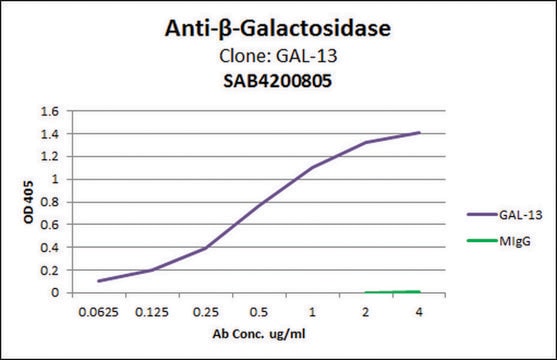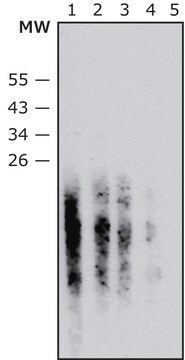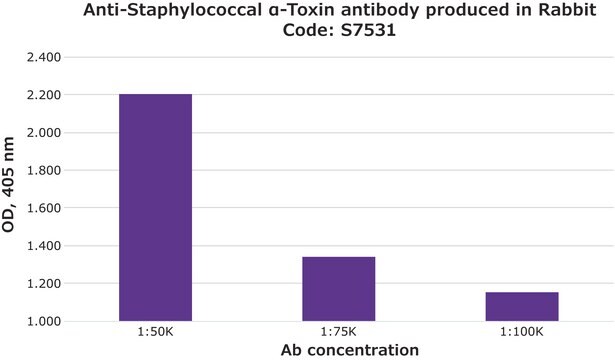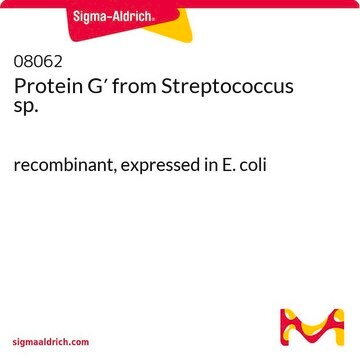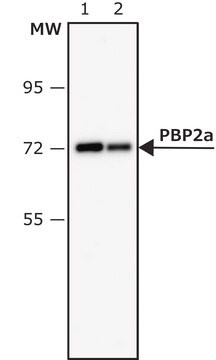MAB930
Anti-Staphylococcus aureus Antibody, clone STAPH 11-248.2
ascites fluid, clone STAPH 11-248.2, Chemicon®
About This Item
Recommended Products
biological source
mouse
Quality Level
antibody form
ascites fluid
antibody product type
primary antibodies
clone
STAPH 11-248.2, monoclonal
species reactivity
human
manufacturer/tradename
Chemicon®
technique(s)
ELISA: suitable
isotype
IgM
shipped in
wet ice
Specificity
No cross-reactivity with Streptococcus sp., Mycoplasma sp., or Corynebacteria sp.
Immunogen
Application
Optimal working dilution must be determined by end user.
Infectious Diseases
Infectious Diseases - Bacterial
Physical form
Storage and Stability
During shipment, small volumes of product will occasionally become entrapped in the seal of the product vial. For products with volumes of 200μl or less, we recommend gently tapping the vial on a hard surface or briefly centrifuging the vial in a tabletop centrifuge to dislodge any liquid in the container′s cap.
Legal Information
Disclaimer
Not finding the right product?
Try our Product Selector Tool.
Storage Class Code
12 - Non Combustible Liquids
WGK
WGK 2
Flash Point(F)
Not applicable
Flash Point(C)
Not applicable
Regulatory Listings
Regulatory Listings are mainly provided for chemical products. Only limited information can be provided here for non-chemical products. No entry means none of the components are listed. It is the user’s obligation to ensure the safe and legal use of the product.
JAN Code
MAB930:
Certificates of Analysis (COA)
Search for Certificates of Analysis (COA) by entering the products Lot/Batch Number. Lot and Batch Numbers can be found on a product’s label following the words ‘Lot’ or ‘Batch’.
Already Own This Product?
Find documentation for the products that you have recently purchased in the Document Library.
Customers Also Viewed
Our team of scientists has experience in all areas of research including Life Science, Material Science, Chemical Synthesis, Chromatography, Analytical and many others.
Contact Technical Service


